Join us on the Interactive Brokers Podcast as Senior Economist Jose Torres sits down with Bill Isaac, former FDIC Chairman and financial industry titan. Discover Bill’s insights on how today’s regulatory failures mirror past crises and what we need to fix our financial system. From the challenges of the 1980s to today’s economic turbulence, get an insider’s perspective on steering clear of history’s pitfalls and shaping a resilient future.
Summary – IBKR Podcasts Ep. 173
The following is a summary of a live audio recording and may contain errors in spelling or grammar. Although IBKR has edited for clarity no material changes have been made.
Jose Torres
Hello everyone. Welcome to Interactive Brokers Podcasts, I’m Jose Torres, your Senior Economist, and I’m joined today by a very special guest, Mr. Bill Isaac, former chairman of the FDIC, Federal Deposit Insurance Corporation.
Bill has an unparalleled career in the financial industry and public service spanning over 50 years. He is chairman of Secura Isaac Group, a global advisory firm that serves financial institutions, non-banks, fintech firms, central banks, and Domestic and International Regulatory Agencies. Bill headed the FDIC from 1978 through 1985.
By the way, 1978 was the year our firm, Interactive Brokers, was founded, so pretty interesting that Bill started at the FDIC in 1978.
During the banking and thrift crises of the 1980s, when over 3,000 banks and thrifts failed, he worked closely with the late Federal Reserve Chairman Paul Volcker to maintain stability in the financial system.
Bill was appointed to the board of the FDIC by President Jimmy Carter and named chairman by President Ronald Reagan and was the youngest FDIC board member and chairman in history. Bill also served as chairman of the Federal Financial Institution’s Examination Council.
Bill is the author of Senseless Panic, How Washington Failed America, with a foreword by Paul Volcker. His articles are published in the Wall Street Journal, Washington Post, New York Times, Financial Times, American Banker, The Hill. and other leading publications. He also appears regularly on television and radio, testifies before Congress, and is a speaker throughout the world.
Mr. Bill Isaac! We have you here today on Interactive Brokers, IBKR podcasts, and we’re very happy to have you. Welcome,
Bill Isaac
Thank you, Jose. You almost wore me out with that introduction. I think I remember it.
Jose Torres
Well, I’m glad you’re still here. Let’s get straight to it. So, I saw you last Friday, about a week ago in Tampa, you were giving a speech to the FDIC alumni, of course, which I’m also a member of, working there for roughly three years. The theme you were speaking about, Bill, was its broken, so let’s fix it. A new path for US bank regulation. Give us a little overview of what you mean by that.
Bill Isaac
Well, when I took over the FDIC was appointed of Jimmy Carter, as you mentioned and then repoint by, Ronald Reagan. But when I took it over. Bank regulation was basically based in the 1930s. We were reacting to the Great Depression and the 10,000 banks that failed then, and we created a regulatory system that was basically not allowing banks to compete at all. I mean, to any significant degree.
They couldn’t branch much, and they couldn’t go interstate much at all, and they were strictly relegated to pure banking. You couldn’t be in investment banks. It was pure banking. Competition was tightly controlled. If you wanted to get into the banking business, you had to go through hoops and apply. And, if you wanted to create some branches or a new charter, you had to go through a long process.
That wasn’t working anymore because The Federal Reserve, and the Congress lost control of monetary policy and they lost control of fiscal policies.
We ran massive budget deficits from the 1960s with the Vietnam War that we didn’t pay for. They spent a lot of money, but didn’t pay for it, and then Lyndon Johnson’s war on poverty, spent an enormous amount of money on those programs, didn’t pay for them, and that set off inflation. So, we had massive inflation.
I think it was around between 11 and 12% and it was totally out of control. Jimmy Carter, to his great credit, appointed me. I don’t give him a lot of credit for that. But he appointed Paul Volcker in the year after he appointed me to be chairman of the Fed.
And Paul Volcker was a phenomenal chairman of the Fed and a phenomenal human being. I loved Paul Volcker. Unfortunately, he’s passed but I still miss him a lot. Our country needs him so much.
But anyway, we lost control of fiscal policy and monetary policy, and it resulted in rampant inflation.
We had to deregulate banks to Attract money because interest rates went so high. We couldn’t keep those interest rate controls in place or else the banks would have no deposits at all because everybody would leave. So, we had to raise the rates. In fact, the Fed raised their rates to 21.5%.
Imagine that. People are complaining about whatever it is, 8% or something. And people are complaining about it. But the Fed got rates up to 21.5%, and we had thousands of bank failures and thrifts. The whole thrift industry went down, the FDIC was insuring savings banks, and almost all of those failed, at least a massive number of them did. And then the SNLs, both of those were making housing loans primarily and they couldn’t stay in business because the rates were so high, they could not pay high enough rates. because they would go broke if they did, because they were loaning fixed rate loans at relatively low rates that weren’t going to change, so if they had to pay more for their deposits, they would be losing more money. So that’s what we were faced with. Then our major banks had a lot of problems as well. It was a serious, serious set of problems.
Our major banks were loaning massive amounts of money to foreign governments, lesser developed countries, you call them, LDCs. And we were loaning a lot of money, the big banks were loaning a lot of money to them, and they couldn’t afford to pay higher rates than the LDC countries. We were very concerned that the LDC countries would default on their loans and leave our major banks and other major banks around the world, leave them stuck with a bunch of loans that couldn’t pay interest.
So, the treasury, the FDIC, and the Fed met while I was chairman. And we decided upon a plan, if the LDC countries defaulted, we were going to have no choice but to nationalize the major banks in our country. The government would have to take control otherwise they couldn’t pay their debts, they couldn’t support all these LDC loans going down. And we were going to have to take bold action on the part of the government to take control of things.
We still had thousands of bank failures. The LDC countries did not default thank God. We did not have to take those strong actions, but we still had to clean up a lot of problems. 9 out of the 10 largest banks in Texas, for example, failed during that period. 9 out of the 10 largest banks in Texas failed. The largest banks in Florida failed.
The largest banks are in the Northeast and on the West Coast. We had four major banks in California, and I think two at least failed and the other two were acquired by somebody else. None were left basically at the end of the day; they were all owned out of state, or they failed. So, it was a very difficult period. I’m happy I was involved in it.
I’m gratified that we had such success. It was wonderful to be able to work so closely with Paul Volcker and I still miss him a lot.
Jose Torres
Bill, I am going to take the opportunity now to tilt the conversation a little bit to the present. The way I’d like to frame it is, since the 2008 financial crisis, and before that, but especially so specifically for the millennial and the Gen Z population, when we look at what the monetary authorities are doing, what the fiscal authorities are doing, it seems that whenever there’s a problem, the only solution is more liquidity,
Boost the money supply, increase the Fed’s balance sheet back in 2023, when we saw some regional bank stress with SVB, Signature, New York Community, First Republic, we saw the Fed was on path to lowering inflation and reducing their balance sheet, raising interest rates, but as soon as that occurred, the Fed immediately boosted their balance sheet and tried to fix those problems.
I think that as a society today, we’re continue to choose the paths of least resistance for an overwhelming majority of the decisions that we have to make without recognizing the victories that former Fed Chair Paul Volcker had, President Reagan had, you had at the FDIC, the economic growth, the market gains that were unleashed in the 1980s, in the 1990s, a lot of that growth and that progress occurred because of the tough choices that you had to make early.
How do you see today’s framework and the lack of tough choices, particularly against the backdrop of presidential election, where both sides are unlikely to ever want to cut spending at this juncture?
Bill Isaac
You hit the nail on the head. All that work that the FDIC and the Fed and the Treasury, don’t forget Don Regan who was Secretary of the Treasury, he was amazing. He was a former head of Merrill Lynch, and he took some strong actions and we worked closely together with him. So, we had Several agencies that were all aligned and doing their job together.
We didn’t have a lot of arguments. We knew what needed to be done and we were willing to take the risk. Let me just pause a second and go off to an interesting story. Paul Volcker and I were called over to the Senate to talk to both parties in the Senate about what we were going to do to fix the economy.
Because homeowners were having their homes foreclosed by the millions. The jobless rate went up around 11% to 12%, something in that range. So, we had massive unemployment and businesses were going bankrupt. The thrifts were going out of business and banks are falling left and right. They called us over to talk to the senators from both parties. Bob Dole did it. We talked for a couple of hours, then finally, Bob Dole says “We’ve had a great conversation here, we’ve learned a lot and it’s time for us to let these folks go home and go back to their jobs and take care of the banks.”
And one of the senators spoke up and said, “Before we adjourn, let me just ask a question, what are we going to do? What are we going to tell the folks back home? People are suffering by the millions. What are we going to tell them we learned today and what we’re going to do to make their life better?”
Bob Dole, bless his heart, I could have gone over and given him a big hug. Probably would have been unseemly, but in any event, he said, “Why don’t we do something different this time? Why don’t we tell him the truth? And that is that these guys are doing everything they can possibly do to keep these problems contained and not have them do more harm to the economy. They are handling thousands of bank failures, and they’re regulating the banks and trying to figure out how they can bring these problems to an end and recover from them. Why don’t we just go back home and tell the people that we have got some really good people in Washington and they’re working really hard to make these problems go away as fast as possible. There’s nothing else we can do but what they are doing.” It was just amazing to me and that ended the meeting.
On that note I think what I would tell you is what we did back then was we took some strong medicine, and we didn’t duck the problems. We didn’t pretend like they weren’t there, and the Fed didn’t throw a bunch of money at them, and the treasury didn’t throw a bunch of money at the problems. These were almost all handled by the FDIC and the Fed using bank funding.
We weren’t in the business of calling on taxpayers for more money. And that’s something we’ve lost sight of. We don’t know how to handle problems now without throwing, not billions, but trillions of dollars at problems. We never used the word trillion in the eighties, never had to because we never let the problems get that big. We never let the money supply get that big. That’s something we have not learned today.
We’ve forgotten all the lessons of the eighties, as near as I can tell. Let’s just take Silicon Valley Bank, which is one of those three banks that went down in 2023. It went down because it mismanaged its balance sheet. That was not something new. That same thing happened to First Pennsylvania Bank in 1979. They bought up a whole lot of US treasury bills, and they paid for them with short term deposits. They bought long term treasury bills at fixed rates, and they funded them with short term deposits.
When the Fed started raising interest rates and took them up to 21. 5%, First Pennsylvania was in big trouble because they had a massive amount of short-term fixed rate treasuries that they invested in. And they were funded by short term deposits. The treasuries that they owned didn’t go up because they were fixed rate. But the cost of their deposits went up and up. So, they were hemorrhaging money. And they were going to fail, so the FDIC stepped in and temporarily fixed them.
I think the amount we had loaned them was like 500 billion or something. I don’t remember the number, but we made a large loan to them to help them get through the short run while we figured out a way to fail them without disrupting the whole economy. We did that again and again. Continental Illinois was another example. Seventh largest bank in the country.
It had a huge mismatch, but now we get to 2023 and we do it all again. And the regulators let them. The regulators let those three banks go ahead and go into the interest rate mismatch that we had dealt with in the late 70s and thought we’d learned those lessons. And the regulators that, first of all, the banks did it again without remembering the lessons.
The regulators allowed it. They didn’t stop it. They could have stopped it. Then, to make matters worse, once they were in that fix, the regulators go in and save all of the large depositors that funded that mess. The large depositors didn’t lose a nickel. You can’t run the banking system that way. You can’t let major creditors do whatever they want to do in the way of investments and get bailed out every time that happens.
Jose Torres
Big moral hazard problem there.
Bill Isaac
Huge moral hazard problems. The banks did it, which is unforgivable, and the regulators allowed it, which is even more unforgivable in my opinion.
That’s what we’ve been dealing with. And, when I say it’s broken, let’s fix it. That’s what I have in mind. We do not have banking and bank regulation where it needs to be. We taught some pretty good lessons back in the eighties and we had it under pretty darn good control. Then when we go into the 2000’s, we have four presidents. George Bush, the younger, Barack Obama, Trump, and Biden. Four presidents in a row have not remembered a single lesson that we learned in the seventies, eighties, and nineties and we really need to remember those lessons. We need to start acting on them. We need to reform the way we regulate and supervise banks and other financial institutions. I’m really trying to preach that message.
Jose Torres
So, the Fed comes in, they help those banks bloat the balance sheet, and by doing that, they sacrifice an economic goal, which was inflation. Because when you do that, when you mess with the moral hazard, when you misalign the incentive system, you start to have dislocations. So, June of 2023, last year, the CPI, Consumer Price Index, hit 3% and it hasn’t gone below 3% since, right?
We’re in June of 2024 now. Rates have been at the upper end five and a half for quite some time. You contrast that with the Reagan, Volcker, Isaac regime of the eighties, and you notice that the focus wasn’t on quelling volatility at all costs. The focus was on making things right, making things work sustainably over the medium and the longer term, not just tomorrow and next week.
And you got inflation down and you created a terrific economic boom that lasted pretty much until the global financial crisis. From the 2008 financial crisis, to around 2015, we had the slowest recovery in economic growth as well as employment growth, in terms of getting those jobs lost back despite the fed bloating, the balance sheet enacting or bringing rates to zero.
Despite all of that, we still couldn’t perform economically, and I guess for our audience. Taking the volatility, taking the medicine, bringing rates higher, letting some of those institutions, right? These managers, a lot of them are geniuses. They went to the best universities in the world.
They understand that interest rate risk is real, and rates can spike at any time, right? And punishing those institutions when they take too much risk, or when they’re extending their arm towards a cookie jar is an important ingredient for economic policy.
Bill Isaac
You’re spot on. It reminded me of a conversation. I had many conversations with Paul Volcker, obviously, and I learned a lot from him. I was only 34 when I went to the FDIC. I was truly a kid. In fact, I’ll tell you that after we both had left the government, we used to meet a lot before he passed.
And we were walking down park Avenue, I think in New York, and we were going to dinner or something. I said something that made him think about my age. He said, “well, how old are you?” And, I said, “I’m 50 Paul.” And, he said, “you’re 50! How old were you at the FDIC?” I told him, he said. “You were just a kid. No wonder I had so much trouble with you.” Anyway, we learned a lot of lessons and they were all forgotten. They really were. They’ve been thrown out the window.
Let’s take 2008 when we had that crisis. How did they handle it? They threw $750 billion of taxpayer money at it. $750 billion. We don’t talk about billions anymore because we’re way past that. We’re in the trillions. But that was a credible amount of money. The Secretary of the Treasury, or two of them in a row, threw that money at the banking problems.
It took me back to the conversations that Paul and I had when I said, can’t the Fed just print more money? And solve all these problems. We shouldn’t have all these bankruptcies. You can fix them all. He said, no, we can’t. That just creates more problems. I was just a kid learning from him. What can we do? What can’t we do? And he said, “No, we can’t do that. We’re going to kill inflation, not create it. And besides, the Fed doesn’t have the power to do that. Congress hasn’t given us the power, nor should they.”
Then we get to 2008 and every lesson that we had learned in the seventies and eighties and nineties was thrown out the window, and the treasury and the fed and Congress, are throwing money at the problems, and creating bigger problems that we’re going to pay for, for a long time to come. We really are going to pay a price as we try to fix these problems and get rid of them, because they can’t continue.
Jose Torres
One big problem we’re seeing just morning on June 27th that we’re recording. Pending home sales reached all-time lows since back when the series started back in 2001. I think that’s one of the problems that’s occurring on the back of really buoyant monetary and fiscal stimulus.
What do you think?
Bill Isaac
I don’t know what the problems are going to be specifically and how big they’re going to be. I can tell you that they’re going to be big problems and we’re going to pay a difficult price. The sooner we get on it, the better it’s going to be for everyone. We can’t let this keep on growing out of control the way it is. We’re just not following sound policies. We’re making big mistakes. And we keep on making them bigger and bigger. Somebody responsible has got to get on top of this problem.
Let me just say one last thing and that is, I give Jerome Powell, the Chairman of the Fed, a lot of credit. He has stepped up to the plate and he’s trying to fix this problem as best he can without a whole lot of help from anywhere. He’s, he’s fighting a lonely battle. I applaud him. He’s not getting it fixed because he can’t fix it alone. He needs Congress to help in a big way. And he needs a lot of help from the treasury and so forth. But Jerome Powell is doing all he can do to try to fix this problem, and I applaud him, and I appreciate it.
Jose Torres
So, Bill, one of the problems that I’m seeing with it. These policies are home affordability has essentially become impossible. That’s why I referenced it in this morning’s number on pending home sales. The mix of price and rate is just untenable for most new buyers, particularly those millennials and those Gen Z folks.
But another aspect, another big consequence of these accommodative policies, throwing money at everything, Band-Aid, quick fixes, another problem. Is also that all that money and all that liquidity doesn’t go to actual individuals or small businesses in aggregate. It really benefits those folks that own multiple homes, those folks that have huge investment accounts and those corporations that are traded on the S&P 500 or the NASDAQ, not the mom-and-pop shops where I grew up in Queens, New York.
Or out in the Midwest, in Ohio, or in the South, near Atlanta, right? Those mom-and-pop shops don’t really benefit from that. What do you think about those dynamics?
Bill Isaac
I’m so glad you raised that because that, to me, is one of the deepest concerns I have about what’s going on. I grew up in Bryan, Ohio. If you haven’t heard of it, that’s not unusual because it’s 8,000 people today. My family had family businesses. And there are lots of farmers around there who had farms. When I came to the FDIC, we had 13,000 banks in the country. Today we have a little over 4,000 banks in the country.
The largest bank in the country when I was chairman of the FDIC was City Corp. And it was a hundred billion dollars in size. Continental Illinois, which failed, was 40 billion in size. It was the seventh largest bank in the country. Today, it doesn’t count if you don’t have a “T” in front of your bank’s balance sheet. If you’re not a trillion-dollar bank, nobody thinks much of you. And that’s just awful because the heart and soul of this country was the community banking industry.
We were not a country that was based on large banks and very large businesses. We wanted to have good employment for our farmers and for our community banks and our factories in small towns. My small town of Bryan, Ohio had some important factories, but it’s so hard for them to stay in business and it’s so hard for them to find banks to deal with because it used to be that almost all the banking business was in smaller regional banks and community banks.
We didn’t have giant banks and didn’t want them. That’s why we had limited branching and so forth, because we didn’t want a large, massive banking system. We wanted it to be a community-based system and a small business-based system. And we’ve lost that. I don’t think that’s for the better.
I think that’s a problem. One of the things I would like to do with our reforms is to make it easier for small banks to survive instead of passing more legislation that drives them out of business. Congress has lost control of itself, and we shouldn’t be doing a lot of the things we’re doing.
I’ll tell you one right now. Basel III. That’s the latest thing on the agenda of the regulators.
A Basel is a bank capital rule, developed in Basel, Switzerland. It’s an international rule that the US banking system joined and became part of right after I left the FDIC.
They actually proposed it while I was still at the FDIC and the FDIC rejected it. We didn’t want to have capital rules set in other countries. We wanted to set our own capital rules and our own regulatory rules. And I think it’s been a terrible move for the US to become part of a global regulatory system.
I’m not saying that we shouldn’t be involved in meetings and talking to them about how to do things and everything else, but the US needs to create its own regulatory rules for its own banking system.
They need to be what we want to have, not what somebody in Switzerland wants to have, or Korea, or wherever.
We need to set our own rules. I’m going to be talking about that a fair amount. Because I feel very strongly about it. When I was at the FDIC, they called it Basel, which was Basel 1. Now they’re trying to do Basel 3. And each one’s worse than the one before, in my opinion. I don’t have a problem if they want to have Basel rules, that’s fine.
But the US ought to follow its own rules and not give in to the least common denominator. Let’s say France, but I can say any country. I don’t want. Spain or France or Brazil or Bolivia to tell us what our rules should be.
This is important stuff. People might not think so, but it’s very important. It leads to a weakened banking system compared to what we had when we didn’t have Basel and when Paul Volcker and Bill Isaac and Don Regan and others were running the agencies and setting rules based on what was right for America.
Jose Torres
So, what now for Bill Isaac? I was just with you on Friday, you’re not just handsome and energetic on video, you’re great in person as well. What’s next for Bill Isaac?
Bill Isaac
Well, I’m doing what I’ve always done, which is, since I got out of law school, I’ve been in the banking world, I started as a lawyer. Became a banker for a little while and then became a regulator for a fair length of time.
Since then, I’ve been still dealing with regulatory issues, commenting, and trying to help banks deal with all these regulatory issues that they’re facing. The issues just get larger and larger and larger because the regulations get more and more massive and, in my opinion, senseless. That’s why I wrote the book Senseless Panic. It didn’t have to happen. We need to use some common sense and the US should be in charge of its own banking system, not delegating it to Brazil or other countries.
I plan to keep on working for that. I’ll speak on it if Congress wants me to talk, I’ll talk. I would actually go back into the government if somebody wanted me to do that. I don’t care right now about anything more than this. I care about my family more, but my family’s happy to have me do whatever makes me happy.
And what makes me happy is to see the banking system and the financial system in the US and the US economy strong. Strongest in the world. It should be. I will help in any way that anybody wants me to help.
Jose Torres
Former FDIC Chairman Bill Isaac, thank you so much for joining us.
Bill Isaac
Well, thank you for having me and thanks for your service at the FDIC.
Jose Torres
It was my pleasure. Ladies and gentlemen, don’t forget to click subscribe and follow us on Spotify, Apple Music, YouTube, etc. Thank you. See you next time.
Bill Isaac
Bye. Take care.
Disclosure: Interactive Brokers
The analysis in this material is provided for information only and is not and should not be construed as an offer to sell or the solicitation of an offer to buy any security. To the extent that this material discusses general market activity, industry or sector trends or other broad-based economic or political conditions, it should not be construed as research or investment advice. To the extent that it includes references to specific securities, commodities, currencies, or other instruments, those references do not constitute a recommendation by IBKR to buy, sell or hold such investments. This material does not and is not intended to take into account the particular financial conditions, investment objectives or requirements of individual customers. Before acting on this material, you should consider whether it is suitable for your particular circumstances and, as necessary, seek professional advice.
The views and opinions expressed herein are those of the author and do not necessarily reflect the views of Interactive Brokers, its affiliates, or its employees.



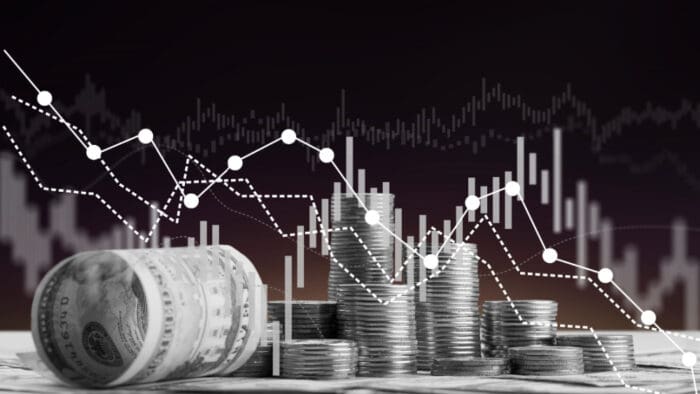
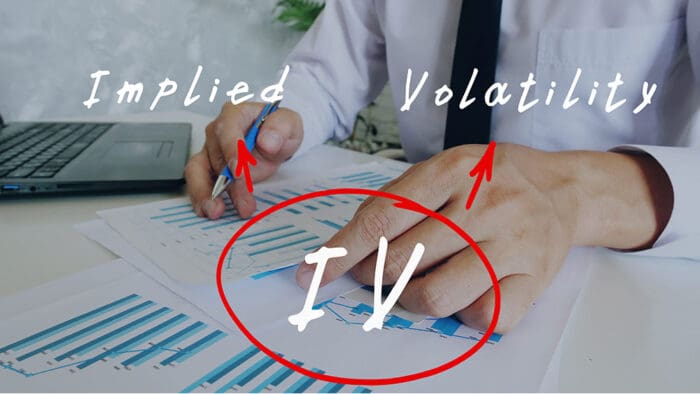


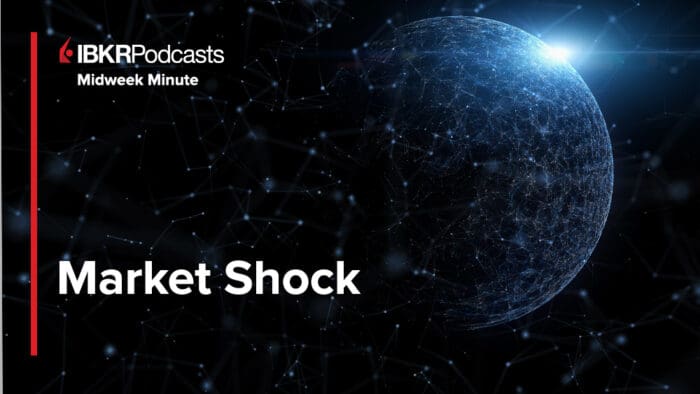
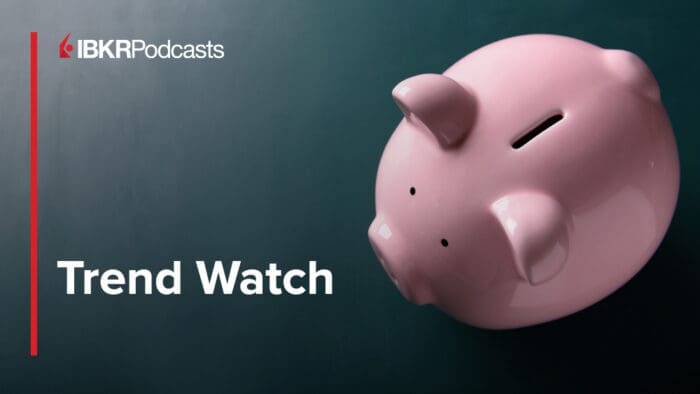



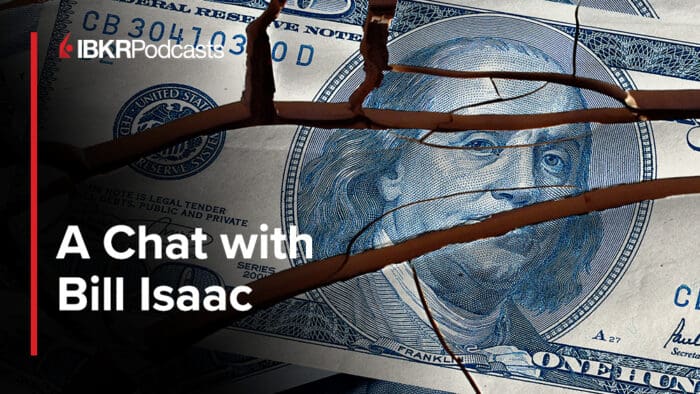
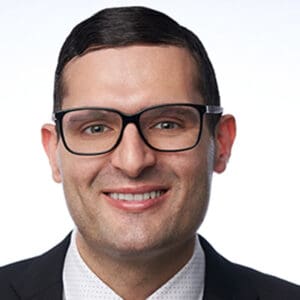
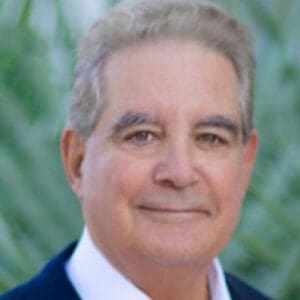
Join The Conversation
For specific platform feedback and suggestions, please submit it directly to our team using these instructions.
If you have an account-specific question or concern, please reach out to Client Services.
We encourage you to look through our FAQs before posting. Your question may already be covered!